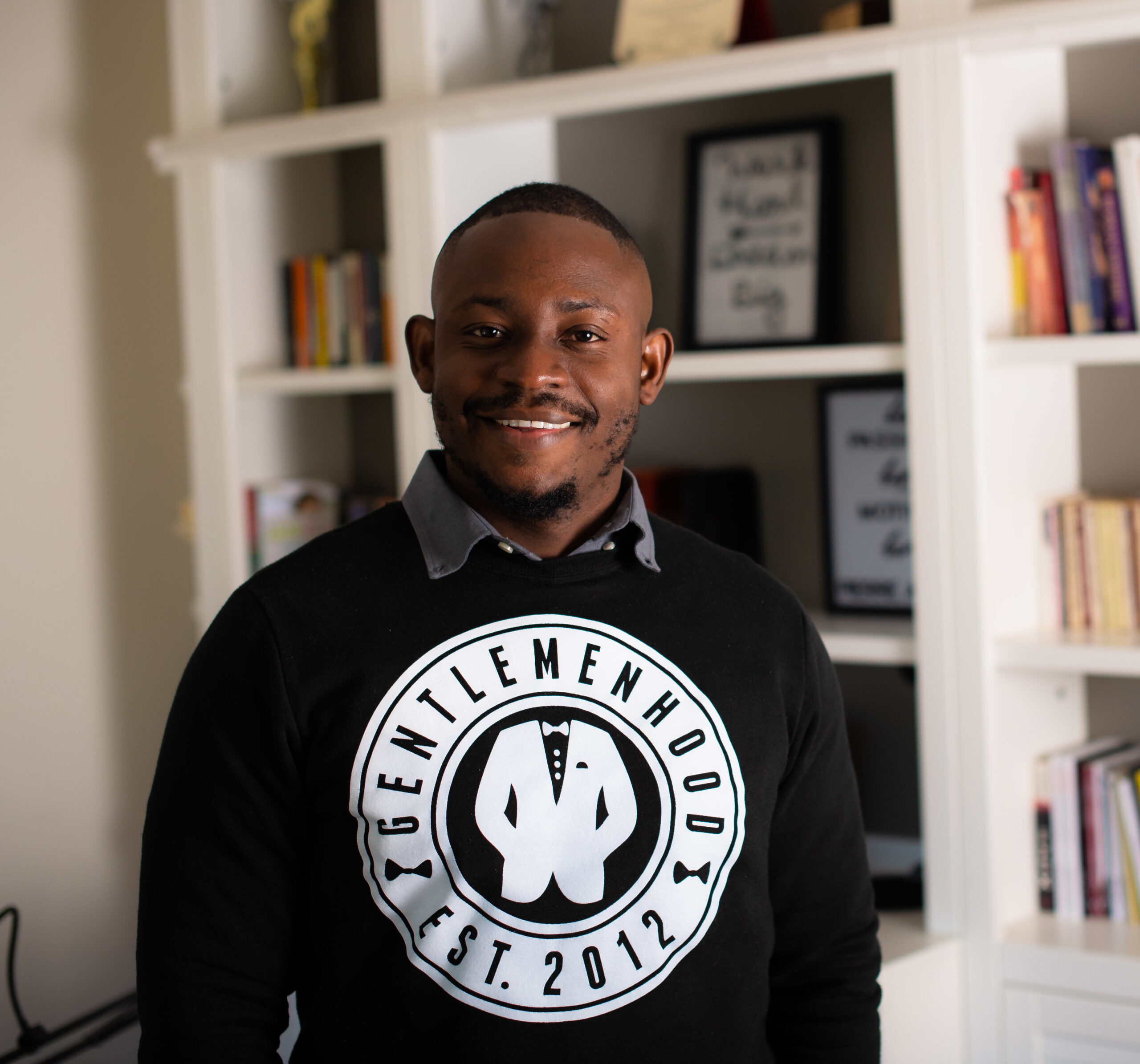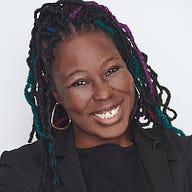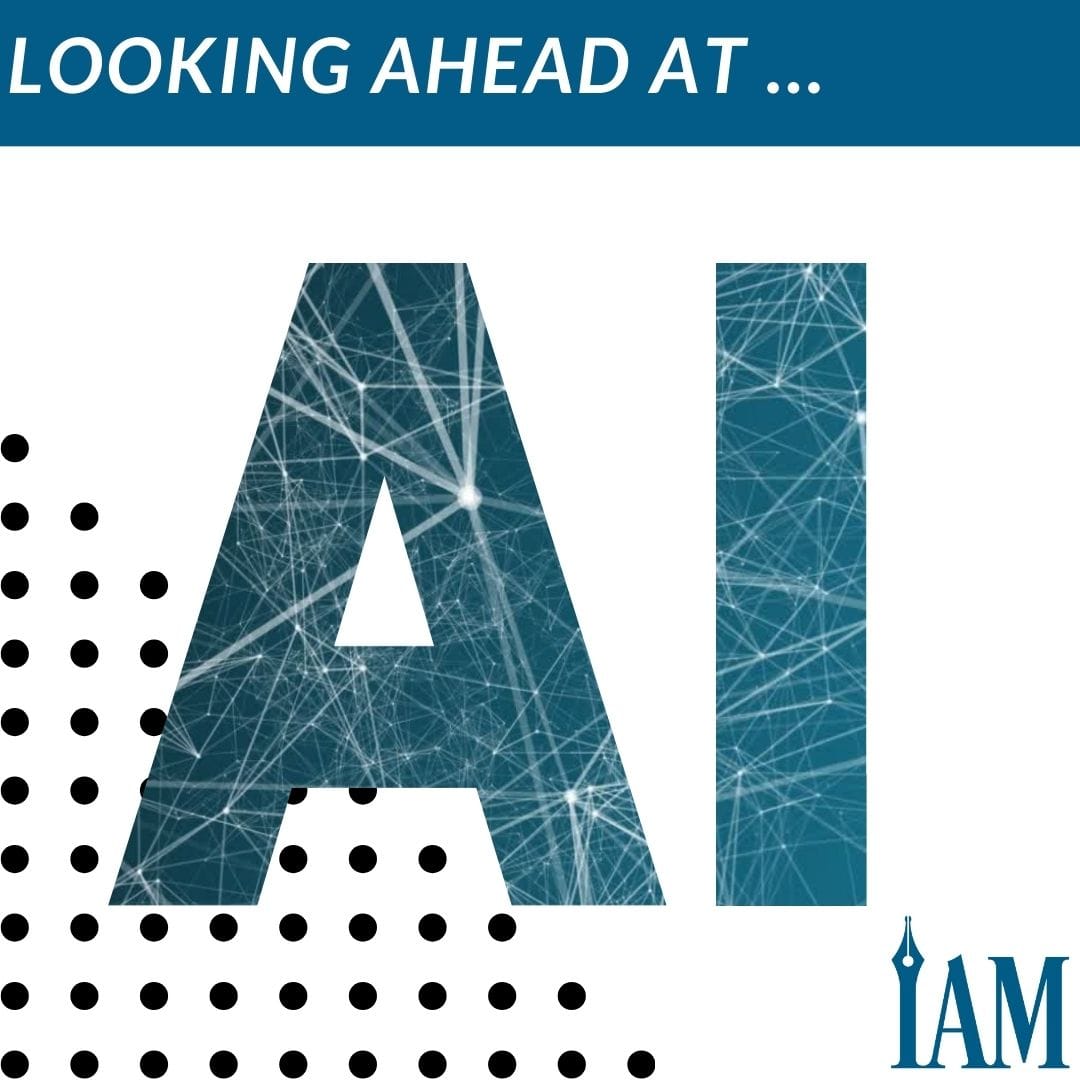Authors understand the power of a strong launch, but describing OpenAI’s launch of ChatGPT simply as “strong” feels like an understatement.
In the first five days after an early demo of the generative AI chatbot released in late November 2022, the site had already amassed more than one million users, according to Forbes. That surge of popularity was just the start for the program and the age of generative AI technology it’s come to represent. In a little under a year, newer iterations of its large language model, GPT, and increased use of the tools overall have improved the quality of AI programs’ outputs, and the use of artificial intelligence has become even more widespread, filtering into nearly every industry—including publishing.
“In the last six months, I've watched this move from a single prompt giving a coherent four hundred words to a coherent two thousand to three thousand words,” says Elizabeth Ann West, author and CEO of Future Fiction Academy. “And I'm not talking about a bunch of messy word salad with some coherent paragraphs here and there.”
As with many creative industries, the explosion of AI has sparked mixed reactions among authors, with some embracing the programs and others sharing concerns about the ethics and legality of using their generated creations. “Storytellers will always find a way to tell their stories. But there are shortcuts that can speed the process,” writes author Tanya Hales. “To some people, that’s important. To others, the more natural, handmade process is more important.”
The tools themselves have quickly become more advanced and capable as well, with authors who’ve incorporated them into their workflow using them for artwork, audiobooks, marketing materials, help with story generation, and more. And as many current legal debates have yet to come to definitive conclusions—policy debates have struggled to keep up with advancements in the programs and have often raised more questions than they’ve answered—many authors agree AI is here to stay.
“We are only at the beginning of the opportunities of AI for wider society as well as for creativity and art, and it’s important that authors, writers, and other creatives be involved in order to shape the future as we want it to be,” said Joanna Penn, author and host of The Creative Penn, in a May 2023 episode of the podcast.
“There are so many tools. And some will resonate with different people, especially those who value speed or who, due to disabilities or personal circumstances, benefit from extra writing aids,” Hales writes. “But there will always be those who want nothing more than a computer and a word processor. And neither choice is wrong.”
Personally, I cannot use AI to write a book or even to cobble together a cohesive scene. I have tried, but the output is worse and takes three times longer to generate than if I’d simply written the words myself in the first place. And because I see AI’s value in its ability to save me time with specific tasks, I do not plan to invest time in learning beyond my own needs. Each individual author will have to figure out their own comfort level and learn accordingly. For those that are afraid of AI, I strongly recommend trying it out so you can laugh and cringe and maybe put some of that fear aside by looking at the current reality of the situation rather than worrying about the many possible futures—only one of which will actually come to be.

Melissa Storm
AI, used as a tool for empowerment, is going to increase access and equity in this industry. I think it also has the dual effect of being able to increase inequality and increase a lot of negative things in publishing. AI is going to decrease the cost of creation, which ultimately will open up the number of stories that could be told and the different backgrounds and voices that could be heard. I think that's really, really beautiful. And it'll also be able to start taking on a lot of the mundane things of being an author and a creative that we might not like as much. ... In reality, technology is social. Technology is a byproduct of human activity, human values, and human emotions.

Michael Evans
I draw a lot of parallels between AI and the automotive industry. Most people that wanted to move any distance where there wasn't a train took a horse, and even when you got there, you were likely to rely on horses for transportation. When cars first came out, a lot of people on horses would yell at people driving by cars saying, "Get a horse!" and [would] make all sorts of arguments as to why horses were better. Horse riding still exists, wagon making still exists, but they are niche industries that target much smaller needs and not general transportation. And I honestly feel like the same is going to be true for producing writing without AI. I think you can still do it. I just think that you'll either have to do it out of love and not expecting to make money or be targeting a super niche area, where people can charge a price that makes it worthwhile, worth the time it takes to make the product.

Malorie Cooper
When it comes to AI and how it will affect the publishing industry, I believe I have to preface this by saying, first, I am a marketer and an author, so therefore, I always look at things a bit differently. … Despite a lot of authors feeling that it may take their job or may dilute publishing in general, I think one of the things that they have to look at is how it can strengthen the author's journey, the author's creation process, the author’s publishing career in general. I think there has to be a balance where it's not being misused. And there are also going to be negatives, where it does impact authors negatively. But I think they also have to look at the positives, which is where they can put it to use, because it’s here to stay.

Pierre Jeanty
AI has the potential to open the market for disabled writers.

S. J. Pajonas
Everyone needs to learn how AI can help them in their business. ... Technology will never be as important as telling great stories.

Damon Courtney
AI doesn't scare me. It is a tool. I use so many tools to help my writing be better. And that's what I think of when I think of AI, is “How will it make me better?” … If you can take a tool and you can use that tool to make your art better, like if you use a better paintbrush, if you use a better hammer or a better drill, or if you have an instrument at its finest, a really fine instrument, that's what AI is. That's how I'm looking at it. This is an instrument that can make my art better, but I am the artist. I am wielding this thing.

Ines Johnson
I am in the camp that it will look different in five years, just kind of like our laptops look different. ... I just adopted Grammarly five years ago. And now I have all sorts of editing things I do within Grammarly. My editing process looks a lot different. And so AI, hopefully, will work as seamlessly with my process, or it will be a help to me, not a hindrance. I'm not a purist. I'm certainly open to whatever AI can do to enhance my natural talents, just like I'd use a filter on TikTok or use Photoshop.

Theodora Taylor
In five years’ time, [AI is] going to be the full instrument of production, where the idea is what gets put in and how you want that IP expressed, and it'll be able to produce for you a bunch of different options, and then you just choose which one is the best one. So I think AI is going to be our boom—basically the Industrial Revolution and how that hit manual labor. And then it's going to be on us to produce quality and luxury or this concept of what we're actually producing and why a consumer should care about that product, which is a book. … Because while the technology specifically about AI can produce a heck of a lot of content, it's absolute rubbish at actually being able to evaluate that content right now. And I think that even when it gets better at that, a human is still going to need to be that final say so, or we're just going to have stuff that doesn't really move the needle.

Elizabeth Ann West
In five years, virtually all covers will use at least some elements of generative art—with Photoshop having that baked in, I think more and more artists are going to begin using it. In terms of other uses, honestly, I'm not sure. I think we're going to see a divergence here, two sets of authors: one group focusing very, very hard on producing a whole bunch of content that's just good enough, and on the other end of the spectrum, another group of authors who is working to produce the best, most flawlessly targeted, best written-to-market, best “focused on exactly what the audience wants” literature that they can produce. And I don't think that there's room for those two streams to cross all that well. I think that those are going to be very divergent points of view and types of writing businesses. All that said, there's no reason why we can't use AI in both of them. It's just a matter of how it's being used.

Kevin McLaughlin
As generative AI development continues apace and new possibilities emerge every week, the focus of AI discussions in the author community has been centered around productivity gains and high-volume output; copyright, plagiarism and piracy; and the fear of losing the artistic human aspect of being an author. But there is much to be excited about if we can move past fear and doubt, and approach these tools with curiosity and a sense of wonder. We are only at the beginning of the opportunities of AI for wider society as well as for creativity and art, and it’s important that authors, writers, and other creatives be involved in order to shape the future as we want it to be.

Joanna Penn from The Creative Penn podcast, "The AI Assisted Artisan Author"
Some readers will be satisfied with books/art/media that are good enough, an enjoyable escape. They won't mind if their books are largely a product of AI. But others will crave a more human touch. They will long for human connections and will gravitate toward creators who develop those direct relationships with their readers.

Tanya Hales
In five years' time, we're going to normalize the use of AI tools just like we've normalized the use of speaking to devices in our home today, just like we've normalized the use of GPS when you're looking for people, just like we've normalized the adaptation of checking grammar in a Word document. It's going to be part and parcel of the way that we continue to work and grow and write and be inspired. We're going to be able to leverage these tools that are going to do a few simple things in ways we can't even imagine possible, which is what technology often does.

Mark Leslie Lefebvre
I use AI right now to help me with keywords, if I'm trying to find keywords for my books. I use it to help me with email subject lines. So if I'm going to send an email, [I'll ask] "What would be the best email to reach people about a new audiobook coming out?" And it will give me a bunch of different options.


